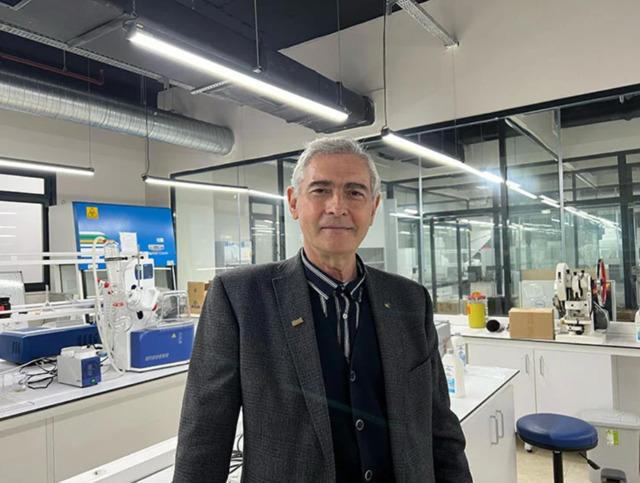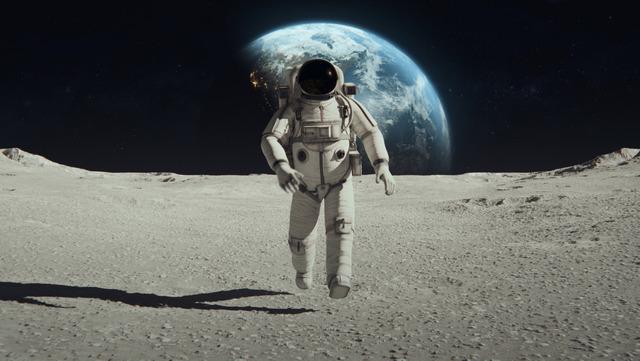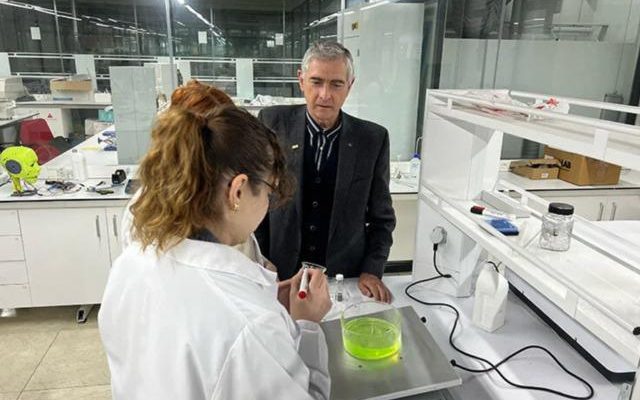After the first Turkish astronaut Alper Gezeravcı was sent into space on January 19, scientists in the country intensified their work on protecting the health of astronauts during long-term space missions. In this context, Prof., who carries out studies in the field of aerospace pharmacy. Dr. İsmail Tuncer Değim, together with his students, took action to protect astronauts from the high levels of radiation in space. Prof. Dr. As a result of their work, Değim and his students produced a cream from scorpion skin, which is known to be impermeable to radiation and ultraviolet light. This cream aims to protect the face and hands of astronauts, especially those who go on missions, from the effects of radiation during spacewalks.
THERE IS MORE RADIATION IN SPACE
Prof. Dr. İsmail Tuncer Değim said that while sunscreen is important on Earth, radiation blocking cream is more important in space.
Emphasizing that people who go to space are exposed to more radiation, Değim said, “The creatures that are most resistant to radiation, that do not die or get harmed by radiation, are scorpions and other insects that have a chitin layer. We developed an ointment from the scorpion’s shell by pulverizing it. Scorpions absorb radiation themselves due to the hyaline layer inside their skin.” “We aimed to reduce the exposure of astronauts to space missions by using this cream.” he said.
Stating that scorpion skin reflects ultraviolet light and radiation, Değim said, “Since radiation or ultraviolet light will be reflected in the area where the ointment we prepared from scorpion skin is used, the person will be protected from ultraviolet light and radiation.” said.
Stating that studies have shown that astronauts are exposed to 10 to 50 times more radiation than those on Earth, Değim said that they developed the cream to reduce this. Değim said that the patent application process for this cream is continuing.
STUDIES ARE BEING CONDUCTED ON DRUGS THAT THOSE GOING TO SPACE SHOULD USE
Prof. Dr. İsmail Tuncer Değim explained that they started teaching Aerospace Pharmacy at the university in 2018-2019.
In this context, Değim stated that they are doing studies on what kind of changes occur in the bodies of people who go to space and what medicines these people need in space, and said that knowledge on this subject has begun to accumulate.
Prof. Dr. Değim noted that non-standard topics made students more curious, and stated that this course attracted more attention after Alper Gezeravcı went to space, and that different faculties started to show interest in this subject and received invitations to give speeches. Değim also stated that he was the first academician to give lectures on Aerospace Pharmacy.

In this course, “What drug formulations would a person need when going into space?”, “How does the stability of drugs change in space?” Stating that they focused on these issues, Değim continued as follows:
“Because in the spacecraft, drugs are exposed to more radiation, vibration, and pressure changes. Therefore, as pharmacists, we foresee this and ask, ‘What should we take into account in their stability and formulations?’ this or ‘Which drug formulations need which drug active ingredient?’ “We are examining it because there is an incredible gyroscopic effect inside the spacecraft, which causes the astronauts and the people there to become dizzy and their physiology changes.”
BONNET DRY SHAMPOO WAS DEVELOPED FOR ASTRONAUTS TO WASH THEIR HAIR
Stating that people have some cosmetic needs such as washing hair, bathing, brushing teeth, Değim said that those who go to space, like those on Earth, also need to do these.

Noting that one of the formulations they developed in this context is dry shampoo, Değim said, “Because astronauts need to take a bath and wash their hair inside the spacecraft. But there is not as abundant a water source as on Earth. Therefore, we have a dry shampoo formulation. Normally, this is included in our Pharmacy Legislation. But this “Dry shampoo has come to the fore with space missions or developing technology. Dry shampoo is a shampoo that we use in powder form without using water.” he said.
Pointing out that dry shampoo can also be used in disaster situations because it is difficult to access water resources, Değim explained that the hair can be cleaned by wearing a cap containing dry shampoo, prepared within the scope of the formula developed by his student, on the head. (AA)

